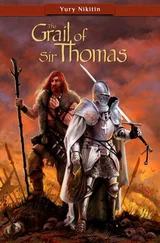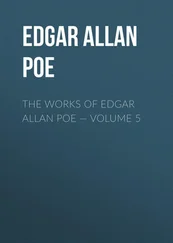Thomas Browne - The Works of Sir Thomas Browne, Volume 3
Здесь есть возможность читать онлайн «Thomas Browne - The Works of Sir Thomas Browne, Volume 3» — ознакомительный отрывок электронной книги совершенно бесплатно, а после прочтения отрывка купить полную версию. В некоторых случаях можно слушать аудио, скачать через торрент в формате fb2 и присутствует краткое содержание. ISBN: , Жанр: foreign_antique, foreign_prose, на английском языке. Описание произведения, (предисловие) а так же отзывы посетителей доступны на портале библиотеки ЛибКат.
- Название:The Works of Sir Thomas Browne, Volume 3
- Автор:
- Жанр:
- Год:неизвестен
- ISBN:http://www.gutenberg.org/ebooks/39962
- Рейтинг книги:4 / 5. Голосов: 1
-
Избранное:Добавить в избранное
- Отзывы:
-
Ваша оценка:
- 80
- 1
- 2
- 3
- 4
- 5
The Works of Sir Thomas Browne, Volume 3: краткое содержание, описание и аннотация
Предлагаем к чтению аннотацию, описание, краткое содержание или предисловие (зависит от того, что написал сам автор книги «The Works of Sir Thomas Browne, Volume 3»). Если вы не нашли необходимую информацию о книге — напишите в комментариях, мы постараемся отыскать её.
The Works of Sir Thomas Browne, Volume 3 — читать онлайн ознакомительный отрывок
Ниже представлен текст книги, разбитый по страницам. Система сохранения места последней прочитанной страницы, позволяет с удобством читать онлайн бесплатно книгу «The Works of Sir Thomas Browne, Volume 3», без необходимости каждый раз заново искать на чём Вы остановились. Поставьте закладку, и сможете в любой момент перейти на страницу, на которой закончили чтение.
Интервал:
Закладка:
4. The custom it is of Popes to change their name at their creation; and the Author thereof is commonly said to be Bocca di porco , or swines face; who therefore assumed the stile of Sergius the second, as being ashamed so foul a name should dishonour the chair of Peter ; wherein notwithstanding, from Montacutius and others I find there may be some mistake. For Massonius who writ the lives of Popes, acknowledgeth he was not the first that changed his name in that Sea; nor as Platina affirmeth, have all his Successors precisely continued that custom; for Adrian the sixt, and Marcellus the second, did still retain their Baptismal denomination. Nor is it proved, or probable, that Sergius changed the name of Bocca di Porco , for this was his sirname or gentilitious appellation: nor was it the custom to alter that with the other; but be commuted his Christian name Peter for Sergius , because he would seem to decline the name of Peter the second. A scruple I confess not thought considerable in other Seas, whose Originals and first Patriarchs have been less disputed; nor yet perhaps of that reality as to prevail in points of the same nature. For the names of the Apostles, Patriarchs and Prophets have been assumed even to affectation; the name of Jesus hath not been appropriate; but some in precedent ages have born that name, and many since have not refused the Christian name of Emmanuel . Thus are there few names more frequent then Moses and Abraham among the Jews ; The Turks without scruple affect the name of Mahomet , and with gladness receive so honourable cognomination.
And truly in humane occurrences there ever have been many well directed intentions, whose rationalities will never bear a rigid examination, and though in some way they do commend their Authors, and such as first began them, yet have they proved insufficient to perpetuate imitation in such as have succeeded them. Thus was it a worthy resolution of Godfrey , and most Christians have applauded it, That he refused to wear a Crown of Gold where his Saviour had worn one of thorns. Yet did not his Successors durably inherit that scruple, but some were anointed, and solemnly accepted the Diadem of regality. Thus Julius , Augustus and Tiberius with great humility or popularity refused the name of Imperator , but their Successors have challenged that title, and retain the same even in its titularity. And thus to come nearer our subject, the humility of Gregory the Great would by no means admit the stile of universal Bishop; but the ambition of Boniface made no scruple thereof, nor of more queasie resolutions have been their Successors ever since.
Turkish History .
5. That Tamerlane was a Scythian Shepherd, from Mr. Knolls and others, from Alhazen a learned Arabian who wrote his life, and was Spectator of many of his exploits, we have reasons to deny. Not only from his birth, for he was of the blood of the Tartarian Emperours, whose father Og had for his possession the Country of Sagathy ; which was no slender Territory, but comprehended all that tract wherein were contained Bactriana , Sogdiana , Margiana , and the nation of the Massagetes , whose capital City was Samarcand ; a place though now decaid, of great esteem and trade in former ages. But from his regal Inauguration, for it is said, that being about the age of fifteen, his old father resigned the Kingdom and men of war unto him. And also from his education, for as the storie speaks it, he was instructed in the Arabian learning, and afterward exercised himself therein. Now Arabian learning was in a manner all the liberal Sciences, especially the Mathematicks, and natural Philosophy; wherein not many ages before him there flourished Avicenna , Averroes , Avenzoar , Geber , Almanzor and Alhazen , cognominal unto him that wrote his History, whose Chronology indeed, although it be obscure, yet in the opinion of his Commentator, he was contemporary unto Avicenna , and hath left sixteen books of Opticks, of great esteem with ages past, and textuary unto our days.
Now the ground of this mistake was surely that which the Turkish Historian declareth. Some, saith he, of our Historians will needs have Tamerlane to be the Son of a Shepherd. But this they have said, not knowing at all the custom of their Country; wherein the principal revenews of the King and Nobles consisteth in cattle; who despising gold and silver, abound in all sorts thereof. And this was the occasion that some men call them Shepherds, and also affirm this Prince descended from them. Now, if it be reasonable, that great men whose possessions are chiefly in cattle, should bear the name of Shepherds, and fall upon so low denominations; then may we say that Abraham was a Shepherd, although too powerful for four Kings: that Job was of that condition, who beside Camels and Oxen had seven thousand Sheep: and yet is said to be the greatest man in the East. Thus was Mesha King of Moab a Shepherd, who annually paid unto the Crown of Israel an hundred thousand Lambs, and as many Rams. Surely it is no dishonourable course of life which Moses and Jacob have made exemplary: ’tis a profession supported upon the natural way of acquisition, and though contemned by the Egyptians , much countenanced by the Hebrews, whose sacrifices required plenty of Sheep and Lambs. And certainly they were very numerous; for, at the consecration of the Temple, beside two and twenty thousand Oxen, King Solomon sacrificed an hundred and twenty thousand Sheep: and the same is observable from the daily provision of his house: which was ten fat Oxen, twenty Oxen out of the pastures, and an hundred Sheep, beside row Buck, fallow Deer, and fatted Fowls. Description of the Turkish Seraglio, since printed. The daily provision of the Seraglio. Wherein notwithstanding (if a punctual relation thereof do rightly inform us) the grand Seignior doth exceed: the daily provision of whose Seraglio in the reign of Achmet , beside Beeves, consumed two hundred Sheep, Lambs and Kids when they were in season one hundred, Calves ten, Geese fifty, Hens two hundred, Chickens one hundred, Pigeons an hundred pair.
And therefore this mistake concerning the noble Tamerlane , was like that concerning Demosthenes , who is said to be the Son of a Black-smith, according to common conceit, and that handsome expression of Juvenal .
Quem pater ardentis massæ fuligine lippus,
A carbone et forcipibus, gladiosq; parante
Incude, et luteo Vulcano ad Rhetora misit.
Thus Englished by Sir Robert Stapleton .
Whom’s Father with the smoaky forg half blind,
From blows on sooty Vulcans anvil spent.
In ham’ring swords, to study Rhet’rick sent.
But Plutarch who writ his life hath cleared this conceit, plainly affirming he was most nobly descended, and that this report was raised, because his father had many slaves that wrought Smiths work, and brought the profit unto him.
CHAPTER XVII
Of some others
1. We are sad when we read the story of Belisarius that worthy Chieftain of Justinian ; who, after his Victories over Vandals , Goths , Persians , and his Trophies in three parts of the World, had at last his eyes put out by the Emperour, and was reduced to that distress, that he begged relief on the high-way, in that uncomfortable petition, Date obolum Belisario . And this we do not only hear in Discourses, Orations and Themes, but find it also in the leaves of Petrus Crinitus , Volaterranus , and other worthy Writers.
Читать дальшеИнтервал:
Закладка:
Похожие книги на «The Works of Sir Thomas Browne, Volume 3»
Представляем Вашему вниманию похожие книги на «The Works of Sir Thomas Browne, Volume 3» списком для выбора. Мы отобрали схожую по названию и смыслу литературу в надежде предоставить читателям больше вариантов отыскать новые, интересные, ещё непрочитанные произведения.
Обсуждение, отзывы о книге «The Works of Sir Thomas Browne, Volume 3» и просто собственные мнения читателей. Оставьте ваши комментарии, напишите, что Вы думаете о произведении, его смысле или главных героях. Укажите что конкретно понравилось, а что нет, и почему Вы так считаете.












